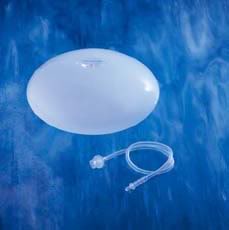Fibromyalgia and chronic fatigue syndrome (CFS) are more common in people with silicone breast implants than in those with systemic sclerosis (SSc) and no implants, according to a study.
This suggests that silicone may trigger immune responses that increase the risk of developing either of the conditions. However, researchers noted, more studies are needed to fully interpret this relationship.
The study, “Silicone breast implants and depression, fibromyalgia and chronic fatigue syndrome in a rheumatology clinic population,” was published in Clinical Rheumatology.
It was thought that breast implants did not trigger any immune response because a sturdy membrane separates the silicone from the adjacent tissue.
In recent years, however, some local immune responses were observed around breast implants and a relationship between silicone breast implants and autoimmune syndrome induced by adjuvants (ASIA) — a recently discovered condition in which exposure to a trigger leads to autoimmune responses — was suggested.
Some ASIA symptoms are similar to those of fibromyalgia and chronic fatigue syndrome (CFS) — for example, chronic pain and stiffness, as well as mood disorders. However, it is not clear if the response to breast implants influences the risk of developing fibromyalgia or CFS.
Researchers used data from rheumatology clinic patients at the Royal Adelaide Hospital in Australia to determine if there was an association between silicone breast implants and fibromyalgia, CFS, or depression.
Researchers studied 30 female patients, 47.9 years old on average, treated between 2000 and 2017, who received silicone breast implants before being diagnosed with a rheumatological condition.
They included age-matched women diagnosed with systemic lupus erythematosus (SLE) or systemic sclerosis — two conditions characterized by an excessive immune response — who had not received implants, as the control groups.
The time between receiving breast implants and being seen at the clinic varied considerably among the patients, ranging from two to 38 years.
Overall, six patients were diagnosed with fibromyalgia, three with chronic fatigue syndrome, and 12 with depression; the remaining patients were diagnosed with other conditions, such as Sjögren’s syndrome and rheumatoid arthritis.
There was no difference in the occurrence of fibromyalgia, depression, or CFS in patients who received breast implants when compared to patients with SLE.
However, women who received implants had a higher incidence of fibromyalgia or CFS than the systemic sclerosis control group. There was no difference regarding depression among the groups.
Nine participants experienced implant rupture. “It has previously been theorized that implant rupture results in greater exposure to the silicone adjuvant and this has been associated with an increase in diagnoses of both fibromyalgia as well as connective tissue diseases. In the present study, patients with ruptured implants were no more likely to have depression, fibromyalgia or CFS than those without (recognized) implant rupture,” the authors said.
The fact that fibromyalgia and CFS occurred more frequently in women with silicone breast implants than in controls with systemic sclerosis suggests there might be a relationship between receiving silicone breast implants and developing fibromyalgia and CFS.
However, the authors concluded that “[more] studies are required to prospectively evaluate patients undergoing silicone breast implants to determine their risk for autoimmune disease, depression, fibromyalgia, and CFS. Clear documentation of mood and pain scores should be undertaken pre-operatively and periodically thereafter to clearly study any possible relationships.”

